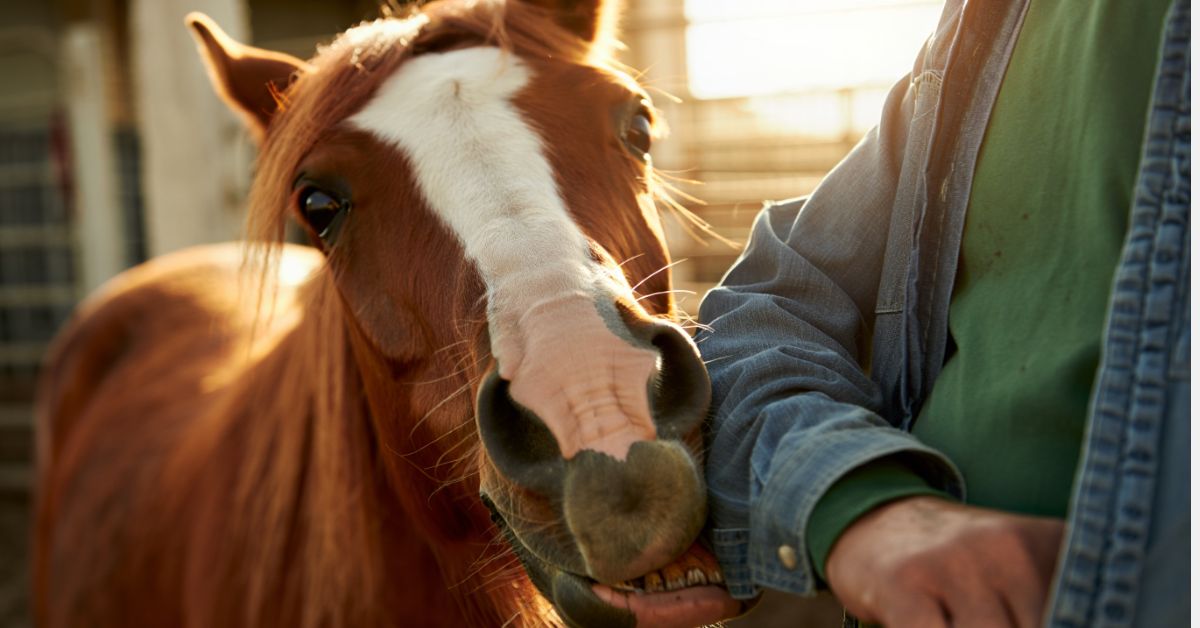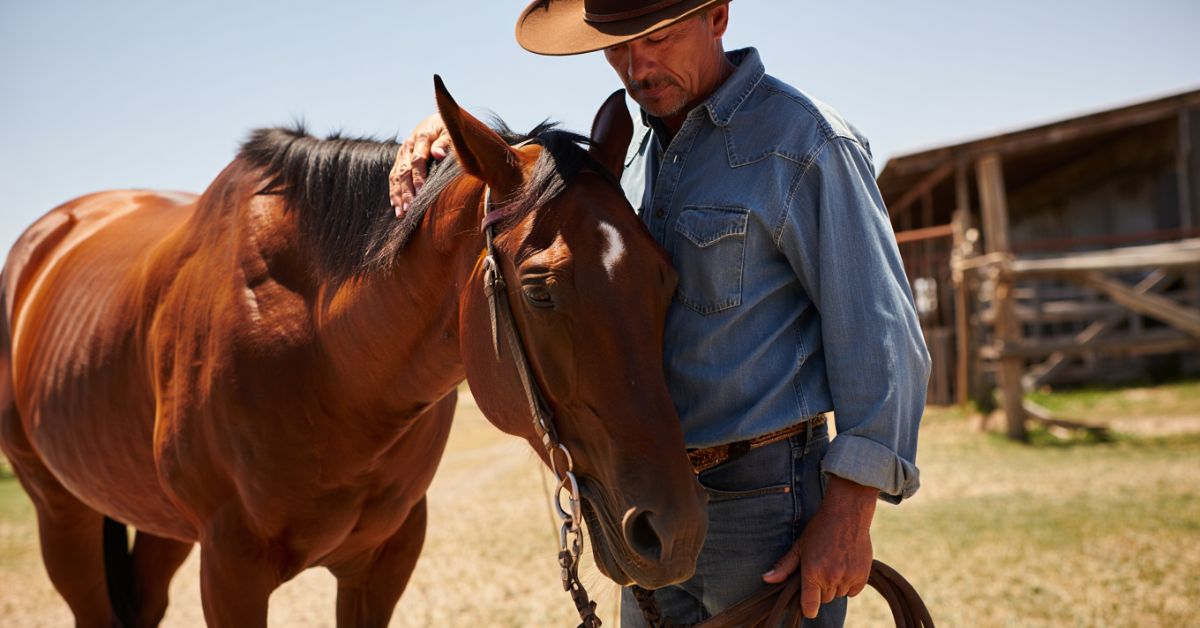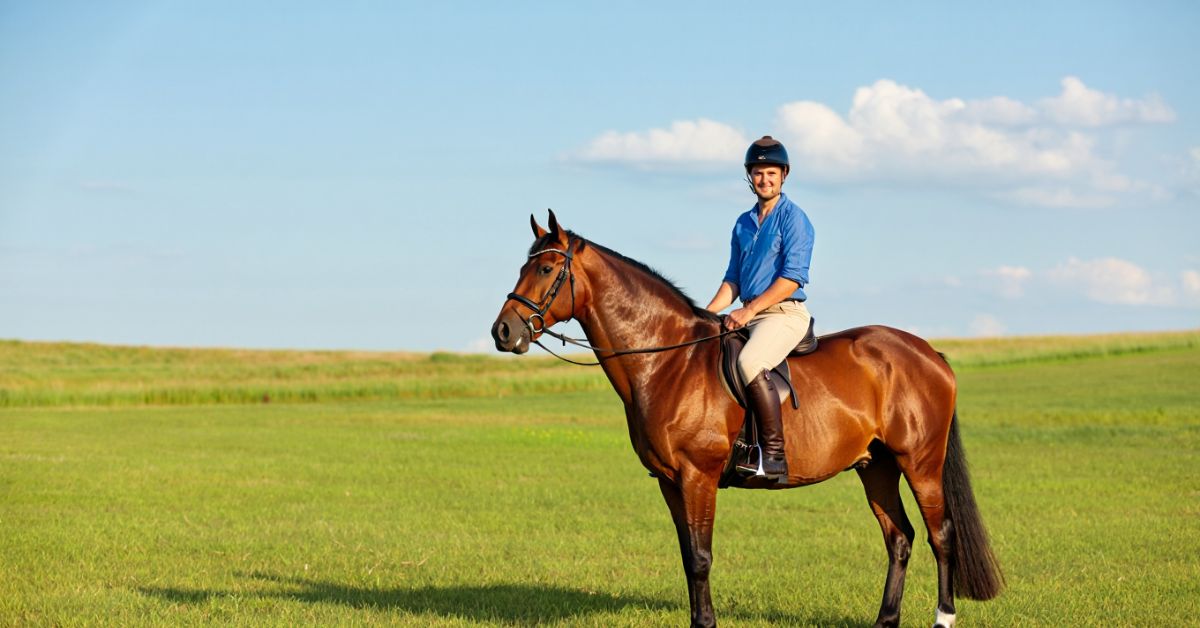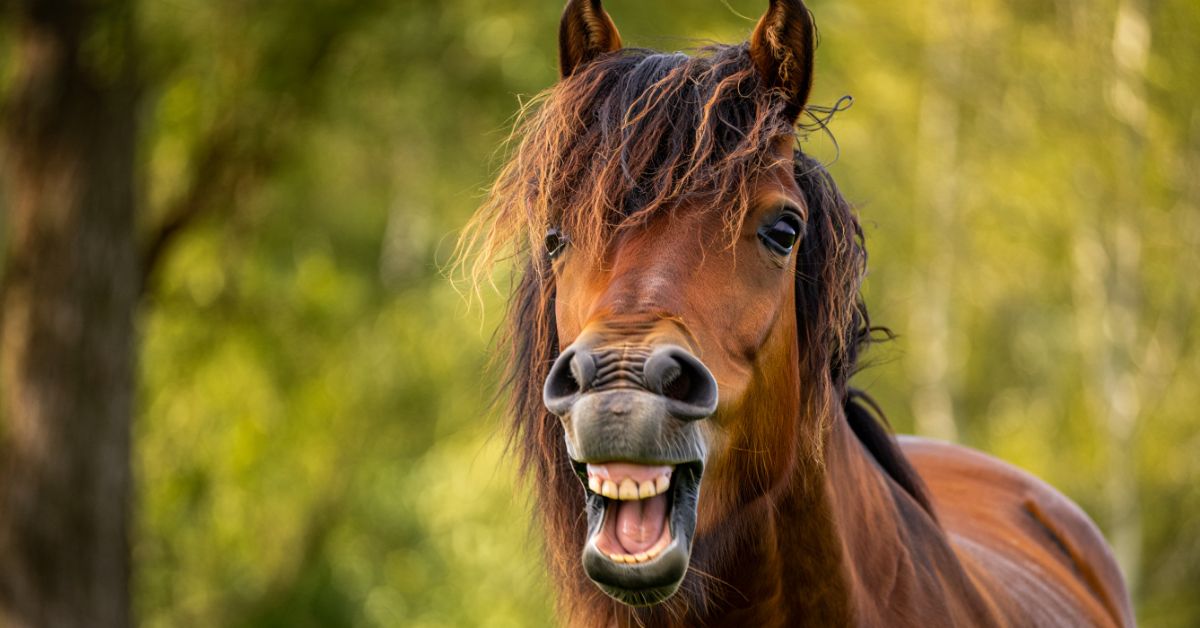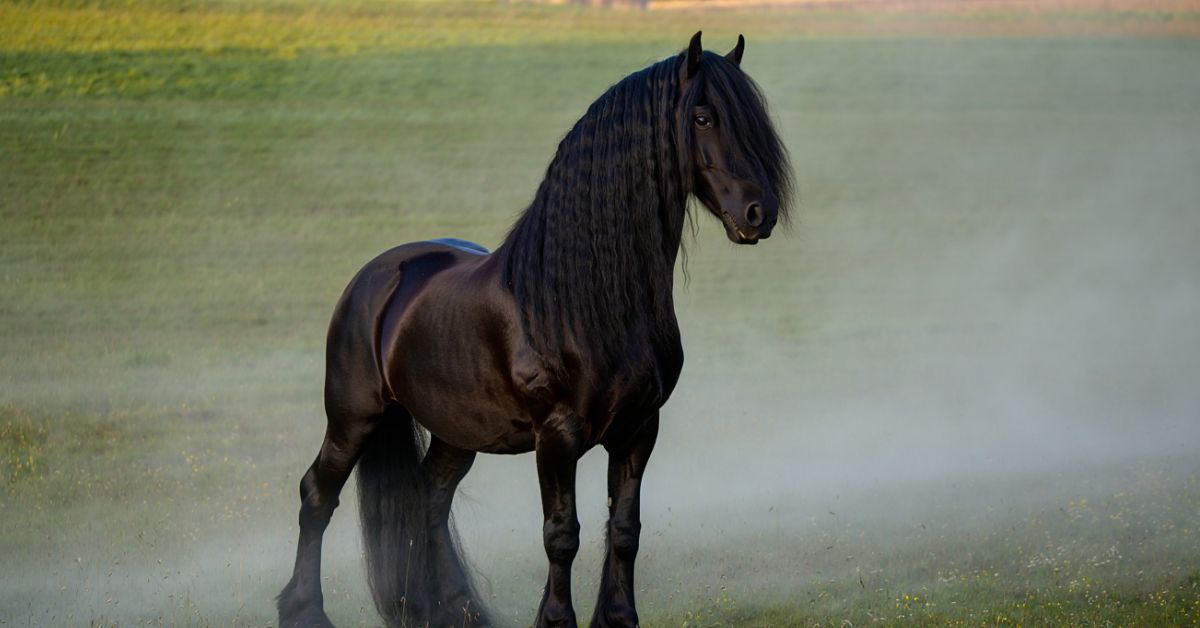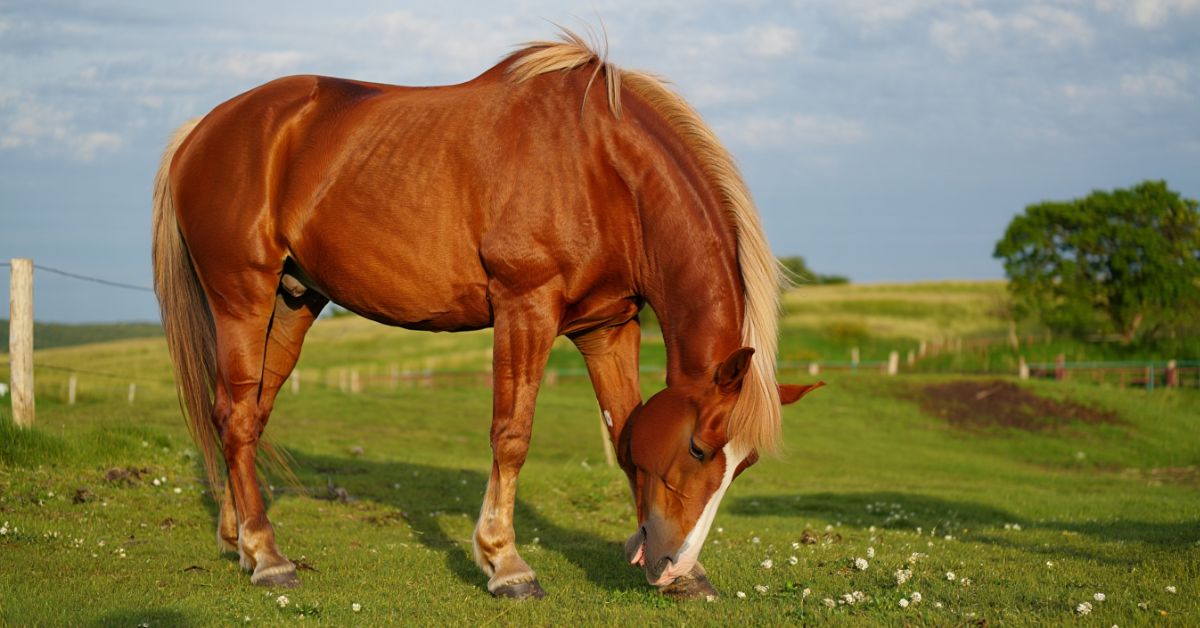
Why Do Horses Eat Poop? Understanding Coprophagia in Your Equine Friend
Why do horses eat poop? If you've ever caught your beloved horse munching on manure, you're not alone in wondering about this puzzling behavior. Coprophagia—the technical term for eating feces—is actually a natural behavior observed in many horses, especially foals. While it might seem disgusting to us humans, foal coprophagy serves important biological purposes, including establishing healthy intestinal flora, obtaining essential nutrients, and developing proper gut health. In adult horses, occasional manure consumption can indicate nutrient deficiency, mineral imbalance, or even behavioral issues like boredom in horses. Understanding why horses eat poop helps you ensure your equine companion gets proper nutrition and care. At Dream Horse, we're passionate about supporting horse lovers with both knowledge and beautiful equestrian products that celebrate your connection with these magnificent animals. 🐴
The Science Behind Coprophagia: What's Really Happening
Natural Instinct in Foals
Foal coprophagy isn't just normal—it's essential for their development. Between the ages of one week and several months, foals regularly consume their mares' feces. This behavior, observed since veterinary studies began documenting equine behavior in the 1970s, plays a crucial role in establishing microbial balance in the young horse's digestive system.
When foals eat their mother's manure, they're essentially receiving a probiotic supplement straight from nature. The fecal material contains beneficial bacteria that colonize the foal's cecum and large intestine, supporting hindgut fermentation—the process that allows horses to digest fibrous plant material. Dr. Temple Grandin, renowned animal behaviorist, once noted: "Animals do things for reasons that make sense to them, even if those reasons aren't immediately obvious to us."
This natural instinct typically peaks around 2-3 months of age during the critical weaning period and gradually decreases as the foal's gastrointestinal tract matures. By six months, most healthy foals have established robust intestinal flora and stop this exploratory behavior.
The Role of Gut Health and Microbial Balance
Your horse's digestive system is a complex ecosystem where billions of microorganisms work together to break down food. The cecum, a large fermentation chamber in the horse's hindgut, relies heavily on these microbes to process fiber. When gut health is compromised or microbial balance is disrupted—perhaps after illness, antibiotic treatment, or dietary changes—some horses instinctively seek to restore balance by consuming manure.
Think of it like this: if your horse's digestive system were a garden, the beneficial bacteria would be the earthworms and helpful insects. Sometimes, the garden needs reseeding, and horses may attempt this naturally through coprophagia. This is where probiotics for horses can offer a more hygienic alternative, providing beneficial digestive enzymes without the risks associated with fecal material consumption.
Nutritional Reasons Why Horses Eat Poop
Nutrient Deficiency and Mineral Imbalance
One of the primary reasons why horses eat poop in adult animals relates directly to nutrition. When horses experience nutrient deficiency or mineral imbalance, they may develop pica—a condition where animals eat non-food items or unusual substances. Manure consumption can be a form of pica.
Undigested feed in manure may still contain nutrients that weren't fully absorbed during the first pass through another horse's digestive system. This is particularly true if:
-
The original horse had inefficient digestion
-
The feed contained hard-to-digest components
-
Essential minerals passed through without complete absorption
Consider this calculation: If a horse needs 30-40 grams of calcium daily and only receives 20 grams through their current diet, they're facing a 33-50% deficiency. When horses detect nutrients in fecal material, they may attempt to compensate for dietary shortfalls.
Common deficiencies that trigger coprophagia include:
-
B-vitamin deficiency: The hindgut produces B vitamins through vitamin B synthesis, but sometimes not in adequate quantities
-
Sodium and chloride (electrolyte balance issues)
-
Trace mineral supplementation needs, especially copper, zinc, and selenium
-
Inadequate fiber intake, though this seems counterintuitive
Forage Analysis and Feeding Practices
Poor-quality forage is a silent culprit behind many cases of coprophagia in adult horses. A 2018 study in Equine Veterinary Journal found that horses fed low-quality hay were 3.5 times more likely to develop abnormal eating behaviors, including manure consumption.
Your feeding practices matter tremendously. Here's what proper equine nutrition looks like:
Fiber intake should constitute 1.5-2% of body weight daily (15-20 pounds for a 1,000-pound horse). When horses don't receive enough roughage, their gastrointestinal tract doesn't function optimally, potentially leading to compensatory behaviors. Quality forage analysis can reveal if your hay meets nutritional requirements or if you need to supplement.
Pasture management also plays a role. Overworked pastures with sparse grass force horses to forage more intensively, sometimes leading them to sample manure in their environment. Express your commitment to your horse's wellbeing by ensuring they have access to quality forage—it's one of the most fundamental ways you assert your dedication as a horse owner.
Behavioral Reasons Behind Manure Consumption
Boredom, Stress, and Environmental Factors
Not all coprophagia stems from physical needs. Sometimes, why horses eat poop has everything to do with their mental state and living conditions.
Boredom in horses is a serious welfare concern. Horses are naturally active animals designed to graze 16-18 hours daily while moving across varied terrain. When confined to stalls with limited stimulation, they may develop stereotypic behavior—repetitive, purposeless actions like cribbing, weaving, or yes, eating manure.
Stall rest, while sometimes medically necessary, can trigger stress-related behavior. Imagine being a 1,000-pound athlete forced to stand in a 12x12 room with nothing to do. You'd probably develop some unusual habits too! Studies from 2020 show that horses on extended stall rest are 4 times more likely to develop abnormal eating behaviors.
Environmental enrichment makes a tremendous difference. Providing your horse with:
-
Slow-feed hay nets that extend eating time
-
Safe toys and objects to investigate
-
Regular turnout time with companions
-
Varied routines and experiences
These interventions reduce boredom and associated behaviors. As horseman Buck Brannaman wisely said: "Horses don't care how much you know until they know how much you care." Creating an enriching environment shows you care about your horse's mental wellbeing.
Social Learning and Exploratory Behavior
Horses are highly social animals who learn from each other. Young horses observe and imitate older herd members, which explains why foal coprophagy is so prevalent—foals watch their mothers and other horses and sometimes imitate what they see.
Exploratory behavior is another factor, especially in young animals. Horses investigate their world partly through taste and smell. A curious yearling might sample manure simply to gather information about their environment, much like human toddlers put everything in their mouths (though hopefully with better judgment regarding what!).
This social learning means that if one horse in a group develops coprophagia due to nutrient deficiency or boredom, others might follow suit even if they don't have the same underlying need. Managing the herd's overall health and environment becomes crucial.
Health Implications and Veterinary Considerations
When coprophagia becomes frequent in adult horses, it's time for a thorough evaluation. While occasional manure consumption isn't necessarily alarming, persistent behavior warrants investigation.
Parasite Transmission and Health Risks
The most significant concern with why horses eat poop relates to parasite transmission. Fecal material can harbor parasites and their eggs, including strongyles, roundworms, and tapeworms. When horses consume contaminated manure, they risk reinfecting themselves or acquiring new parasitic burdens.
Consider this scenario: You've diligently followed your deworming schedule, administered appropriate anthelmintics, and reduced your horse's parasite load. But if your horse then eats manure from pasturemates who haven't been properly dewormed, you've essentially reset the clock on parasite control.
A proper deworming schedule typically includes:
-
Fecal egg counts every 6 months to assess parasite burden
-
Targeted deworming based on individual needs rather than automatic scheduled dosing
-
Environmental management to reduce fecal material accumulation in pastures
-
Regular veterinary consultation to adjust protocols
When to Seek Veterinary Consultation
Schedule a veterinary consultation specializing in veterinary internal medicine if your horse exhibits:
-
Sudden onset of coprophagia in a previously normal adult horse
-
Weight loss or poor body condition alongside manure consumption
-
Changes in manure consistency, frequency, or appearance
-
Other signs of dietary behavior changes, such as wood chewing or dirt eating
-
Lethargy, dull coat, or other signs suggesting nutrient deficiency
Your veterinarian can perform comprehensive diagnostics including:
Blood work to assess mineral levels, vitamin status, and overall health markers. For example, testing can reveal if your horse has low copper (normal range: 0.6-1.5 ppm) or selenium (optimal: 0.18-0.25 ppm).
Fecal analysis beyond simple parasite checks can examine digestive enzyme activity and hindgut fermentation efficiency.
Dietary review where your vet evaluates your current feeding practices, performs forage analysis, and recommends adjustments to achieve proper equine nutrition.
The investment in professional evaluation typically ranges from $200-500 but provides invaluable insights into your horse's health. Express your dedication to your horse's wellbeing through proactive healthcare—it's how you assert your role as a responsible horse owner.
Practical Solutions to Prevent Coprophagia
Optimizing Diet and Supplementation
Addressing why horses eat poop often requires dietary modifications. Work with an equine nutritionist or your veterinarian to develop a comprehensive feeding plan.
Increase quality forage: Ensure your horse receives adequate fiber intake through high-quality hay or pasture. A 1,000-pound horse needs approximately 15-20 pounds of forage daily. Quality matters more than quantity—choose hay with good color, pleasant smell, and appropriate maturity.
Balance minerals: Add a properly formulated vitamin and mineral supplement or a ration balancer to address potential mineral imbalance. Many basic feeds and pasture don't provide adequate trace mineral supplementation. Look for products containing:
-
Bioavailable forms of copper, zinc, and selenium
-
Adequate calcium-to-phosphorus ratio (2:1 is ideal)
-
Vitamin E, especially if hay storage has been prolonged
-
Salt for proper electrolyte balance (2-3 ounces daily)
Consider probiotics: Probiotics for horses containing Lactobacillus, Bifidobacterium, and Saccharomyces species can support gut health and microbial balance, potentially reducing the drive toward coprophagia.
Calculate supplementation needs carefully. If your hay analysis shows 0.25% calcium (on a dry matter basis) and your horse eats 20 pounds daily, they're receiving approximately 22 grams of calcium. Since they need 30-40 grams, you must supplement an additional 8-18 grams daily.
Environmental and Behavioral Management
Creating an optimal environment addresses behavioral reasons behind manure consumption.
Reduce boredom: Implement environmental enrichment strategies that engage your horse's mind and body. This might include:
-
Varied turnout schedules with different pasturemates
-
Obstacle courses or ground poles in paddocks
-
Slow-feed hay nets that extend foraging time from 2 hours to 6-8 hours
-
Safe toys, treat balls, or hanging vegetables
Improve pasture management: Regular manure removal reduces opportunity for coprophagia while breaking parasite life cycles. In smaller paddocks, remove manure daily. In larger pastures, remove it at least weekly or harrow during dry weather to scatter and desiccate fecal material.
Minimize stress: Evaluate what might cause stress-related behavior in your horse's life. Frequent changes, isolation from other horses, inadequate shelter, or harsh training methods all contribute to stress. Creating stability and positive experiences reduces compensatory behaviors.
Monitor during critical periods: Pay extra attention during the weaning period, after illness, following antibiotic treatment, or during any major life changes. These transitions can disrupt intestinal flora and increase the likelihood of coprophagia.
Frequently Asked Questions on Why Horses Eat Poop
Is it normal for foals to eat their mother's poop?
Absolutely! Foal coprophagy is completely normal and actually beneficial for young horses. Foals typically begin eating mares' feces within the first week of life and continue this behavior for several months. This natural instinct helps establish healthy intestinal flora and microbial balance in their developing gastrointestinal tract. The behavior usually peaks around 2-3 months of age and gradually decreases as the foal's cecum development progresses. By six months, most foals have stopped this behavior entirely. As long as your foal is growing well, nursing properly, and showing normal energy levels, this manure consumption is nothing to worry about.
Can eating poop make my horse sick?
Yes, coprophagia poses health risks, primarily through parasite transmission. Fecal material can contain parasites, their eggs, and larvae, including dangerous strongyles and roundworms. When horses consume contaminated manure, they risk infection or reinfection. This is why maintaining a strict deworming schedule and practicing good pasture management are essential. Additionally, if the manure comes from a horse receiving medications or suffering from illness, there could be other transmission risks. While occasional manure consumption in foals is natural, persistent coprophagia in adult horses should prompt a veterinary consultation to address underlying causes and minimize health risks.
What deficiencies cause horses to eat manure?
Several nutritional deficiencies can trigger coprophagia in horses. B-vitamin deficiency is common, as horses rely on vitamin B synthesis in their hindgut, which can be insufficient during stress or after antibiotic use. Mineral imbalance, particularly inadequate sodium, calcium, copper, zinc, or selenium, often drives unusual eating behaviors. Insufficient fiber intake, though counterintuitive, can disrupt hindgut fermentation and lead to compensatory dietary behavior. Some horses develop pica—eating non-food items—when experiencing nutrient deficiency. Comprehensive forage analysis and blood work can identify specific deficiencies. Working with your veterinarian to provide appropriate trace mineral supplementation and probiotics for horses usually resolves nutritionally-driven manure consumption.
How can I stop my adult horse from eating poop?
Stopping coprophagia in adult horses requires identifying and addressing the root cause. Start with a veterinary consultation to rule out nutrient deficiency, mineral imbalance, or health issues. Optimize your horse's diet by providing quality forage (1.5-2% body weight daily), adding a balanced vitamin-mineral supplement, and ensuring proper electrolyte balance. Improve environmental enrichment to combat boredom in horses—increase turnout time, provide social interaction, use slow-feed hay nets, and add safe toys. Practice diligent pasture management by removing manure regularly, which eliminates the opportunity for coprophagia while reducing parasite transmission. Address any stress-related behavior by creating a stable, positive environment. Consider adding probiotics for horses to support gut health and microbial balance. Most cases resolve with proper management and nutrition.
Does eating poop mean my horse has worms?
Not necessarily, though there's a connection. Coprophagia doesn't automatically mean your horse has worms, but it can increase risk of parasite transmission. Horses might eat manure for many reasons: nutrient deficiency, boredom in horses, foal coprophagy (which is normal), or attempting to restore microbial balance after illness. However, fecal material often contains parasite eggs and larvae, so manure consumption creates opportunity for infection. Maintain a proper deworming schedule based on fecal egg counts rather than automatic dosing. Regular testing (every 6 months) helps you understand your horse's parasite burden and adjust treatment accordingly. If your adult horse suddenly develops coprophagia, schedule a veterinary consultation including parasite screening to assess overall health and determine appropriate intervention.
